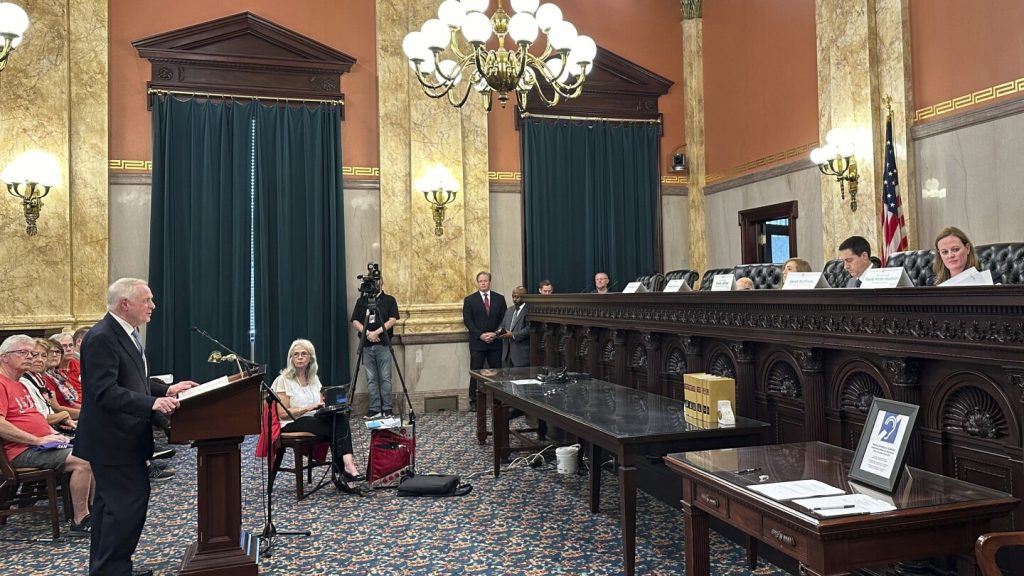Backers of a redistricting amendment in Ohio have vowed legal action after the state ballot board approved what they consider inaccurate and manipulative language to describe their proposal. The proposed 15-member citizen redistricting panel is described as not elected by or subject to removal by voters, and the restrictions on lobbyists and politicians are framed as limiting citizens’ rights to free expression. The amendment, aimed at preventing partisan gerrymandering, is portrayed as requiring it in the approved language. Critics have compared the language to the manipulation of words in George Orwell’s “1984,” raising questions about the integrity of elected officials.
The Ohio League of Women Voters plans to file a legal challenge in the Ohio Supreme Court, arguing that the inaccurate ballot language is an example of why politicians should be removed from the redistricting process. The ballot description of Issue 1 as repealing constitutional protections against gerrymandering approved in past elections fails to acknowledge the history of unconstitutionally gerrymandered maps in favor of Republicans. Ohio Secretary of State Frank LaRose defended the accuracy of the language, stating that it was a comprehensive summary of the lengthy proposal submitted by Citizens Not Politicians.
The proposed amendment seeks to replace the current redistricting commission with a 15-person citizen-led commission of Republicans, Democrats, and independents, selected by retired judges. Republican Gov. Mike DeWine, a member of the existing commission, has expressed concerns about the current system but is against the fall proposal and plans to pursue an alternative if it is approved by voters. Supporters of the existing commission point to their unanimous vote on maps last fall, valid until 2030, but Democrats only agreed to the deal with the anticipation of the 2024 redistricting issue.
The complexity of the proposed amendment has led to disagreements over the ballot language, with critics accusing the Republican-controlled panel of using deceptive wording to sway voters. Despite the approval of the language by the ballot board, citizens will have the opportunity to read the full proposal in newspapers or at their polling places. The legal challenge against the misleading description of the redistricting amendment highlights ongoing concerns about fair and transparent electoral processes.Overall, the controversy surrounding the ballot language and the redistricting amendment underscores the importance of ensuring that voters have access to accurate information when making decisions about their representation in government.


